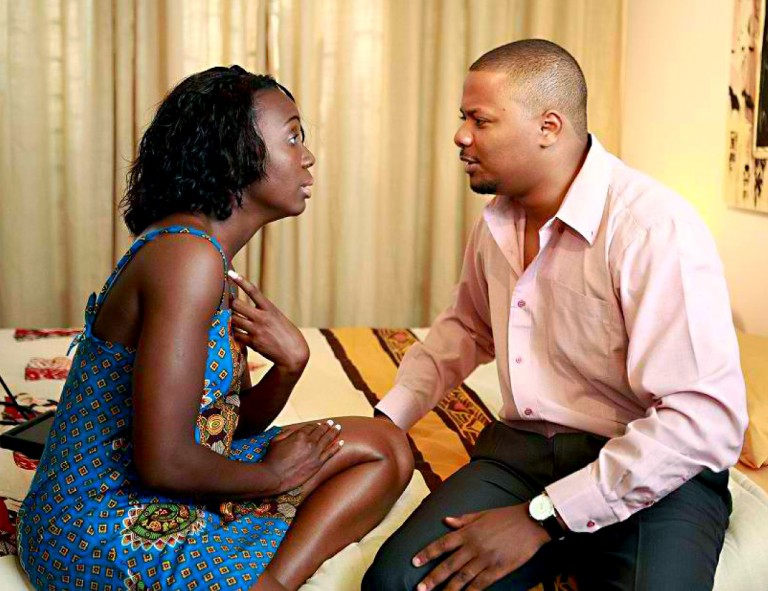Learning how to leave a toxic relationship is never as easy as saying, “Hit the road, Jack!” – especially not when you are in love with your partner.
If you’ve been in a toxic relationship, you know exactly how emotionally, physically, and mentally exhausting they can be. But if a toxic relationship is so taxing, why is it so hard to leave?
In this article, you will find out why it’s difficult to leave a toxic relationship and how to leave a toxic relationship for good.
How to Know if You’re in a Toxic Relationship
Sometimes it’s hard to know whether you are in a toxic relationship or not. It is often because of the manipulation involved in partner -toxicity.
Another reason why it may be difficult to admit that you’re in a toxic relationship is that there isn’t any outward abuse. Your partner may not hit you or cross any obvious sexual boundaries,[1] but that doesn’t mean you’re in a healthy relationship.
Making a pro/con list can be a helpful first step when learning how to leave a toxic relationship.
Pros might be that your spouse makes you laugh, you enjoy the same hobbies, and you love them.
But, what are the cons of being in your current circumstances?
When you make out this list, it’s important, to be honest with yourself. Does your partner do any of the following?
- Doesn’t give you privacy
- Cut you off from friends/family/finances
- Prevents you from attending school or work
- Is controlling and jealous
- Makes all the decisions in your relationship
- Pressures you into things you aren’t comfortable with
- Makes “jokes” or criticizes you
- Is unfaithful
- Talks down to you
- Destroys property
- Sends threatening text messages
- Invades your privacy (checks your phone/social media/follows you)
- Threatens to do something horrible if you leave the relationship
- Gaslights/acts like the things they are doing are not a big deal
If these toxic behaviors remind you of your spouse, this may be the wake-up call you need to take action and get out of your dangerous relationship.
Why Do People Remain in Toxic Relationships?
One of the main culprits is oxytocin. Oxytocin is a hormone in your body that releases during moments of intimacy. This could include making love, holding hands, kissing, or even cuddling with someone.
When oxytocin is released, it causes you to be more trusting of your partner, even when trust is not warranted. This sneaky little hormone is also guilty of promoting bonding, which can make it feel impossible to leave your spouse, even when you know they aren’t good for you.
In addition to the effect of oxytocin, here’re 5 more things that make leaving a toxic relationship difficult:
1. Abuse Weakens You Emotionally
Emotional abuse can be devastating to everyone, leaving the individual weak without self-esteem, making starting afresh a difficult decision to make.
2. It Can Be Life-Threatening
Leaving a toxic relationship can be dangerous, leading to all sorts of consequences, even death. Research shows that a toxic partner kills a larger percentage of women in weeks after leaving a toxic relationship than when they remain in the relationship.
3. The “It Will Stop Mindset’
Society has ingrained in us a “don’t give up on anything” mindset in which people follow even when they recognize it might result in something catastrophic. That mindset is also followed by having the thought that the abuse will stop eventually.
4. Social Pressure
There is always that social pressure from friends, family members, etc., to want a relationship – this pressure only makes the situation worse.
5. Social Reaction
People often don’t want to admit to anyone that they are going through a hard time, which cuts across relationships. People in toxic relationships don’t want to admit the kind of abuse they are going through because of fear or shame of being blamed or judged.
The Effects of Emotional Abuse in a Toxic Relationship
1. Fear
This is a constant concern or awareness of danger. You start to have trust issues with anyone you find yourself with that building a relationship becomes issue overtime.
2. Shame
You don’t feel free to interact with anyone who knows what you have gone through like Friends, family members, etc., which often can result in loneliness.
3. Confusion
Your mind consistently wonders, and you seem to lose concentration and cant focus on a particular task.
4. Drugs or drinking
Abuse often results in excessive use of drugs and drinking. Thought that it could take away the pain is a delusion.
5. Suicide
When the pain and trauma get too much, it can often result in the party taking their lives.
6. Sleep trouble
You don’t get to enjoy sleep as you are supposed to. Thoughts and anxiety become the order of every moment.
How to Leave a Toxic Relationship
1. Know That You Deserve Better
Months or years of being told that you’ll never find anyone better than your spouse can wear on you, and you may even start to believe it. But this isn’t true.
Tearing down self-esteem and self-worth is what abusers do to keep their victims trapped in the relationship.
Let “I deserve better!” become your daily mantra. Remind yourself of your worth every day.
You’ve tried your hardest to make your relationship work, but sometimes love is not enough, and you need to move on for your own mental and physical wellbeing.
2. Build a Support System
The emotions you go through for a toxic breakup are much the same as going through a breakup of a healthy relationship. You will feel conflicted, lovesick, relieved, depressed, and more.
Leaving a toxic relationship is especially difficult if you have been financially reliant on your ex – but don’t despair!
Instead of focusing on why this will be hard, focus on building a support system you’ll need when you take the plunge. Research shows that friend and family support during trying times lowers psychological distress.
Having a support system around will make it easier for you to move on.
3. Be Firm About Your Decision
Breakups are hard, no matter what the circumstance is. You’re leaving a life that you’ve grown accustomed to, and even if you know the relationship is no longer safe, it still sucks, leaving the life you’ve built for yourself.
There may be times when you are tempted to get back with your partner, but stand firm! You deserve a partner who loves and respects you.
Do not give your ex any false hope of getting back together. Be firm in your decision to leave the relationship and don’t budge.
4. Cut Off Contact
One of the biggest times for how to leave a toxic relationship would be to cut off all contact with your ex once you’ve broken up.
Keeping in contact with your ex opens the door for you to get back together. Plus, seeing your ex across social media will make the memory of the relationship feel fresh in your mind. Here’s what to do when you experience that.
Instead of dwelling in the past, focus on the future, keep yourself motivated. Delete your ex from social media, block them on your phone, and find ways to avoid seeing them in person. These actions will make it clear that you want nothing to do with them.
5. It’s Called a Breakup Because It’s Broken
If you’re at the point of breaking up, you’ve likely tried all of the tricks to get your spouse to change their toxic ways.
Maybe you went to therapy, took a relationship class, or made date nights a priority – but nothing worked.
Your partner is not going to change, and it’s important to remind yourself of this often.
You did everything you could to help them and reason with them, and it didn’t work. Do not expect miracles after a breakup.
Even if an abusive ex changes their ways, it is likely only due to the shock of the breakup. If you got back together, their likelihood of returning to their toxic behaviors is incredibly high.
Learning how to leave a toxic relationship is one thing, but following through with it is an entirely different story. If you are having trouble leaving an abusive or toxic partner, reach out to a trusted friend, family, or call/text/chat with an abusive relationship support line like Day One.
Source: Lifehack



